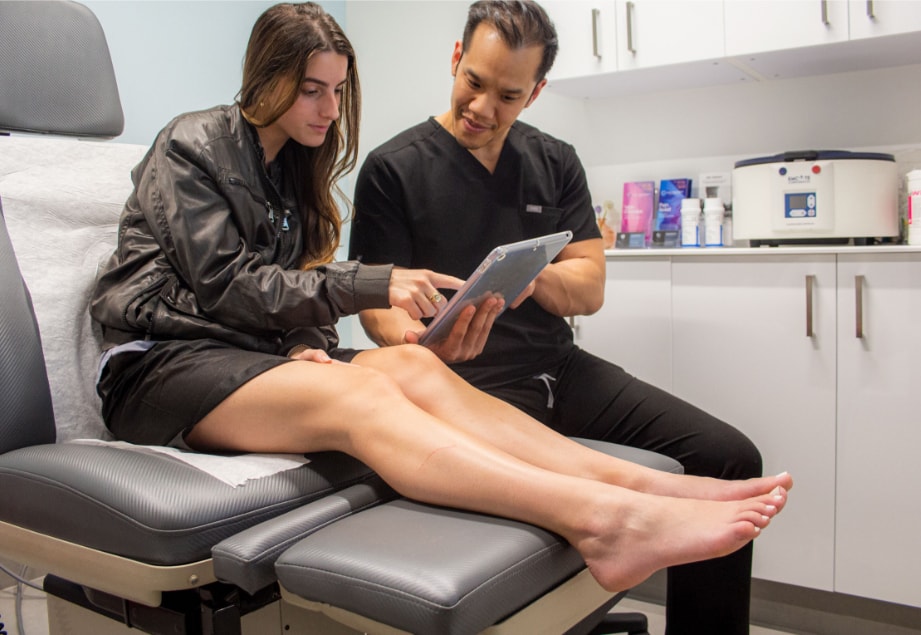Common FAQs About Vein Disease from Vein Treatment New York's blog
Vein diseases are a common problem in many adults. They affect the affected veins, usually in the legs and arms. These veins cause discomfort and pain due to improper blood circulation.
Here are some frequently asked questions about vein disease.
Are all varicose veins the same?No, varicose veins can be of different types. It can affect the deep, superficial veins and the perforator veins. Therefore, many factors can contribute to vein disease. Also, every vein disease has a different treatment. Your doctor will suggest you the best treatment for your situation.
Where do varicose veins usually emerge?Varicose veins usually appear in the lower part of the body, including the legs, calves, ankles, and feet. Spider veins can occur in the arms and face.
Varicose and spider veins are both vein diseases, but they look different in appearance. When comparing varicose veins to spider veins, spider veins are smaller and thinner than varicose veins. Varicose veins appear deep purple and bluish lines or branches on your skin, whereas spider veins have a web-like structure. Spider veins are not as painful as varicose veins.
What happens if I do not treat my varicose veins?Vein disease must be treated. Leaving it untreated can make the situation worse. Wounds, inflamed veins, and ulcers can cause more pain and discomfort. So, it is necessary to treat vein disease. Consult with a vein doctor immediately.
How do you diagnose varicose veins?A vein specialist or vascular surgeon will help diagnose your vein disease. The doctor will use ultrasound to assess the function of the valves in the veins and detect veins that are not working properly.
How to get rid of varicose veins?Vein disease can be treated with sclerotherapy or laser treatment. Your doctor will make the right decision for your vein disease to achieve optimal results. Consult with your doctor and learn what are the treatment options for varicose veins in your case.
How to prevent varicose veins?You cannot completely prevent varicose veins, but there are ways to reduce the symptoms of vein disease. You must stay hydrated, exercise regularly, avoid sitting or standing for long periods, and avoid tight clothes and high heels. Ensure that compression socks are worn to increase blood circulation.

The most common question asked by people is, “Are Varicose Vein Treatments Covered by Insurance?” Many insurance companies cover the cost of treating varicose veins. However, if the treatment is done for cosmetic reasons, like sclerotherapy, insurance may not cover it.
What are the complications of varicose veins?Vein disease can be a serious problem if not treated. Untreated veins can cause open sores, bleeding, skin discoloration, pain, and discomfort. So, you must visit a trained doctor and treat the symptoms.
In Conclusion:Treating vein disease is important for good health. If you have severe problems, you must talk to your doctor about the treatment types and which can be the best choice for you. People with varicose veins can develop blood clots on the skin, which can cause pain and discomfort. Talk to your healthcare provider about varicose veins and get the treatment to live a healthy life.

The Wall